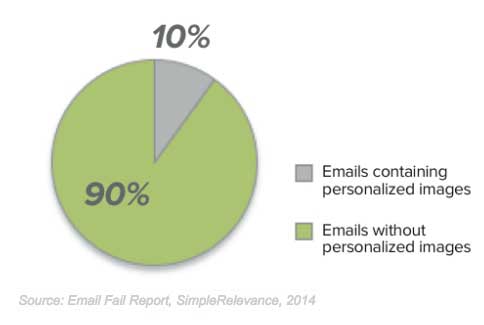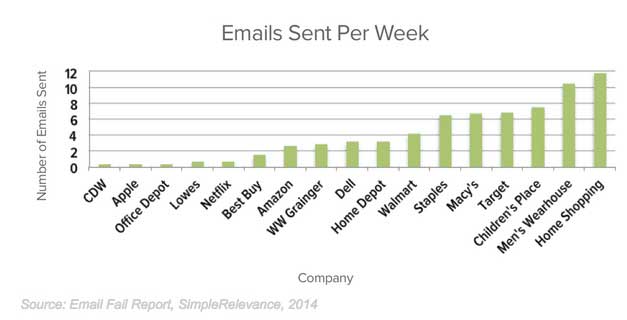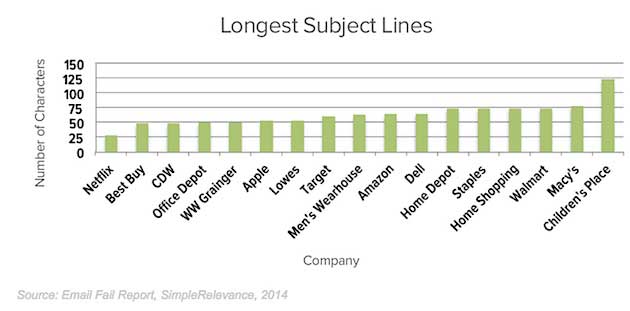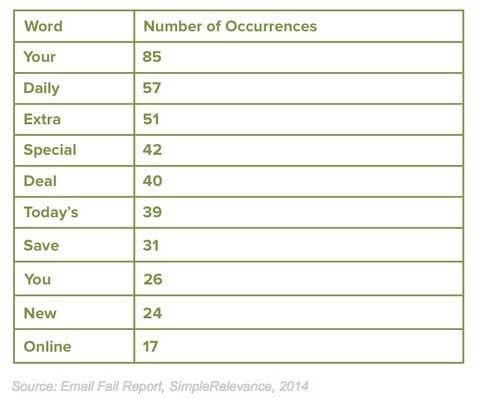Many major retailers are not personalizing their marketing emails based on customer behavior, instead sending out generic messages with nontargeted product recommendations, according to a recent report from SimpleRelevance.
The report was based on data from email campaigns sent by 20 companies in the Internet Retailer Top 500, including Internet-based retailers (e.g., Amazon, Netflix) and brick-and-mortar stores with significant e-commerce operations (e.g., Macy's, Wal-Mart, Walgreens).
The data set was relatively small (418 emails total), so the analysis is more of a snapshot of current behavior rather than a comprehensive audit of all campaigns sent by the companies.
Below, key findings from the report.
Personalization
- Of the 418 emails examined, 104 did not include any product recommendations at all.
- 46% of those emails that did include product recommendations were generated on an individual basis, and 54% were delivered based on categories.
- 78 of the emails examined suggested that their product recommendations were tailored for the customer, but more than half of those were in fact composed of generic content; only 37 of the emails offered truly personalized recommendations.
- Only 10% of the emails contained personalized images (i.e., images of products relevant to that particular consumer based on previous behavior).

Email Frequency
- 40% of the retailers included in the analysis sent less than one email per week or didn’t send marketing emails at all during the time period examined.
- However, a few retailers sent a high volume of emails; in particular, both the Home Shopping Network (11.8 emails per week) and Men’s Wearhouse (10.5) were aggressive with their messaging.

Subject Lines
- 109 of the 418 emails had subject lines longer than than 50 characters.
- The Children’s Place and Macy’s had the two longest subject lines: 123 and 77 characters, respectively.

- "Your” was the most frequently used word by retailers in email subject lines, followed by "daily" and "extra."

About the research: The report was based on data from 418 emails sent by 20 companies in the Internet Retailer Top 500, including Internet-based retailers (e.g., Amazon, Netflix) and brick-and-mortar stores with significant e-commerce operations (e.g., Macy's, Wal-Mart, Walgreens).




